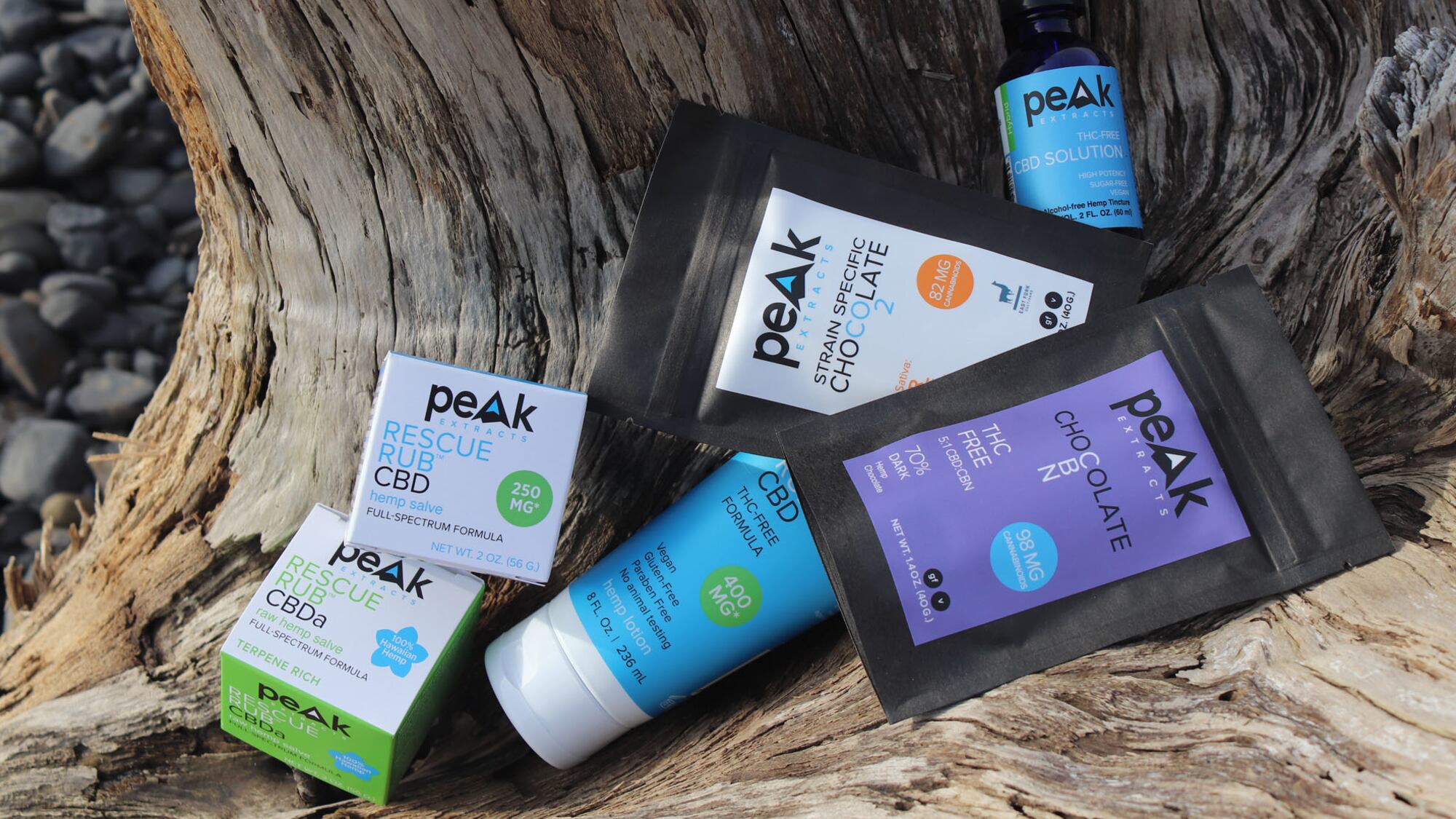Two of Oregon’s most respected cannabis companies, East Fork Cultivars and Peak Extracts, are merging, which, if you rely on either brand medicinally or just appreciate them recreationally, is great news—and not just for consumers, but possibly other small businesses, too.
If you glance at each business’s profile, the merger makes sense. Both East Fork and Peak are renowned for their award-winning therapeutic products. Both companies began with the founder’s need to treat a specific disorder. Both companies prioritize education as well as quality over quantity. East Forks’ expansive, outdoor farms have become a gold standard in organic cultivation, and Peak Extracts boasts a similar reputation for manufacturing strain-specific chocolates and tinctures. So we wondered what, if anything, can consumers expect to see change as a result of the merger?
“Katie [Stem, founder of Peak Extracts] and I have been friends and peer mentors for years,” says Mason Walker, founder of East Fork Cultivars. “We already knew we had a really good overlap on values, products, our product vision, and our business philosophies.”
“I was trying to think of ways that we can change the way we do business,” Stem says. “And it was just like, what does Peak need, what does East Fork need, and how could we possibly help each other out? And the longer Mason and I talked, the more it seemed that there was just an enormous amount of synergy.”
WW caught up with Stem and Walker to discuss what the merger will mean for not just therapeutic users, but for cannabis education, cannabinoid research and development, and small cannabis companies hoping for a survival blueprint.
WW: What was the impetus for the East Fork/Peak Extracts merger?
Katie Stem: I hadn’t talked to Mason for a number of months. We regularly had brunches and hangouts before the pandemic. But I had a dream about him. I woke up, and literally, as I picked up my phone, he texted me. I was like, OK, this is funny. So we called each other that day, and I was trying to think of ways that we can change the way we do business. And he and I started with a thought experiment. Material sourcing has always been a barrier for us, because we’re super picky about who we use. So wouldn’t that be the dream, to have a farm but without all the liability of farming?
Mason Walker: When we started getting more serious, talking about a merger, we already had that foundation. And we could quickly jump forward to the more nuts-and-bolts strategy and vision moving forward, knowing that a solid foundation was already there. Peak and East Fork have long been independently owned, family-oriented craft cannabis operators. As the market continues to commoditize and consolidate and corporatize, we’re able to put our organizations together to better compete against that trend, but still maintain independent ownership, family scale. Through the vertical integration that Katie was talking about, we’re already seeing some of the benefits of that merger.
Is this going to shift focus from either of the brands’ therapeutic roots?
Walker: I’m glad you pointed out therapeutic roots. We already knew that we both deeply hold the same values and largely the same founding story for each of our organizations. East Fork was founded due to a sick family member who had a neurological disorder, and Peak is the same exact story—a little bit more personal, because it’s Katie, specifically, who has Crohn’s disease. I think the merger, if anything, strengthens those founding values, because we both had to be fairly pragmatic and match the market.
How will East Fork and Peak be restructured post-merger?
Stem: The short answer is that there’s not going to be as much that changes, as people would probably guess. One of the super-attractive parts for me about this whole merger is that my passion and background are in formulation and scientific process and chemistry. So I don’t spend nearly as much time as I’d like making and formulating products because I’m running the company. East Fork has this super-well-laid-out and well-crafted infrastructure, but Peak has held on to the core team of seven since the pandemic. That just means I’m doing a lot of really small jobs and not focusing on the formulations.
Walker: Katie is now the president, a board member and minority owner. I got to moderate a virtual panel hosted by Cannabis Business Times, and the topic at hand was exploring rescheduling and descheduling of cannabis as a controlled substance. I think I’m hopeful that this merger can help us be more ready for that because we’ll have more resources to pour in both directions. The combined organization is about 30 people, and I think we’re definitely better situated for that now, mostly because we’re just a little bigger.
Is there an ulterior motive with this merger to set a low-key example that might help preserve some of these smaller companies?
Walker: Absolutely, yeah. East Fork has put our story out into the world. We’re small, but we can show a way of doing things that we believe in and hopefully inspire others to follow the alternative path to regenerative agriculture. We’re tiny. So, in the grand scheme, our impact is limited, but the information, the example can be powerful. This is an alternative for Oregon craft cannabis companies that are under a lot of duress, as opposed to just giving up or trying to sell themselves to the big multistate operators or retail chains.
